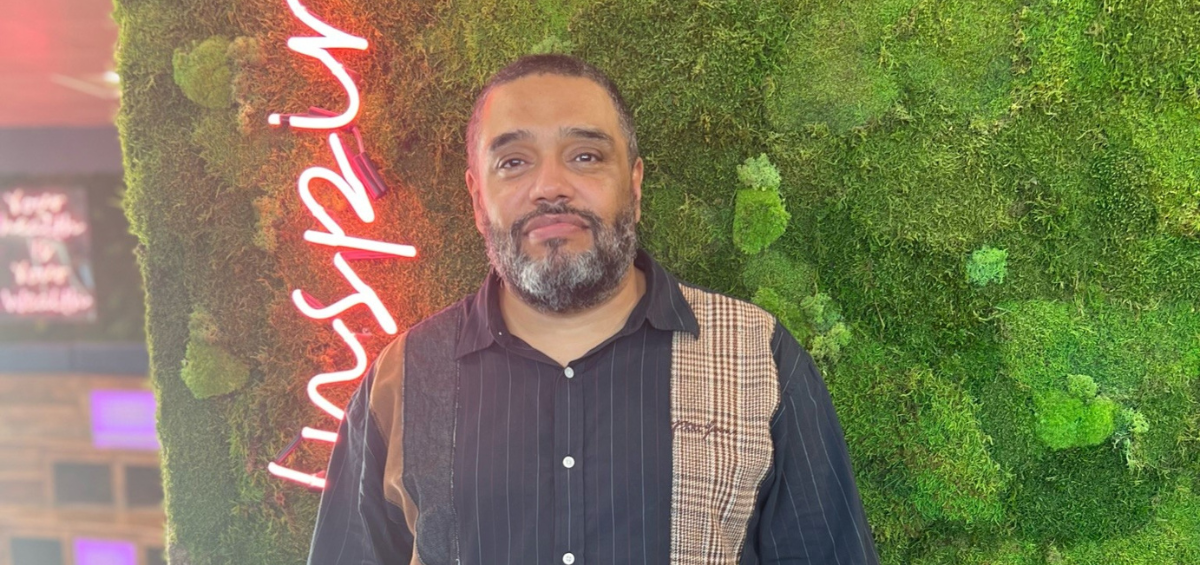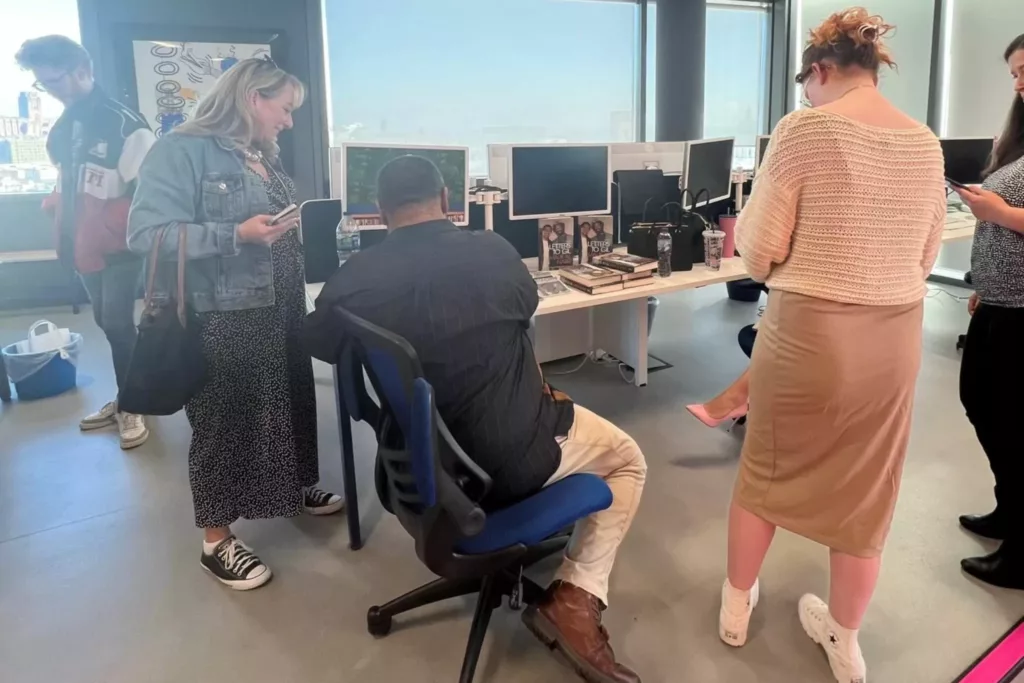We welcomed award-winning author, performance poet, and filmmaker, Malik Al Nasir into the office for a CEL Talk on his life growing up in the care system to now studying for a PhD at Cambridge.
Malik’s Upbringing
Malik was born in Liverpool to a white Welsh mother and a black Guyanese father. When Malik was just nine years of age, his father became paralysed due to a stroke, resulting in the local authority placing him and his brother into the care system. Malik suffered horrific abuse, neglect, and racism – he was singled out for being the ‘big Black kid’ and was taught that he was worth nothing.
When Malik was eventually discharged from the system at 18, he was illiterate and without connections. This was until he had a life-changing encounter with legendary poet and civil rights activist, Gil Scott-Heron at one of his shows in Liverpool’s Royal Court theatre. Gil took a young Malik under his wing, and through his mentorship, Malik went from semi-literate to reading, writing poetry, and eventually studying for a master’s degree.
‘Searching for my slave roots’
In 2002, Malik was watching a documentary when Victorian footballer, Andrew Watson appeared on screen. Watson was one of the first black footballers in the world, and Malik was stunned to see how much he resembled him. Watson even had the same surname as Malik’s father, and was also from Demerara in Guyana, just like his father. This prompted Malik to trace his family lineage, to which he discovered that Watson was a distant relative, born to a formerly enslaved mother and a slave trading Scottish sugar merchant father. Through his research, Malik made yet another shocking discovery: his ancestors made up part of Sandbach, Tinne & Co., a Liverpool-based dynasty whose slave plantations exported goods from the Caribbean to Liverpool and Glasgow. Having huge significance as slave owners, once slavery was abolished in 1833, the Sandbach’s received the second-largest payments for compensation of any other merchants.
Malik has been researching his family roots for over 15 years. In 2020, his BBC article titled ‘Searching for my slave roots’ went viral and led to him earning a book deal. The following year, Malik released his memoir, Letters to Gil.
He is currently studying for a PhD at the University of Cambridge and was recently awarded the university’s 2023 Vice-Chancellor’s Global Social Impact Award for his work on the Sandbach Tinne Project.
Malik’s Talk
During his visit to CEL Solicitors, Malik spoke to us about his upbringing in Liverpool, and how the legacies of slavery and Empire have affected his life not only through his family ancestry, but also throughout his time in the care system. Malik highlighted how Britain’s colonial history continues to inform present-day institutions and legislation, such as the care system, the prison-industrial complex, British banks, the curriculum, and more.
Due to the mistreatment endured by himself and fellow children in his care home, Malik revealed that he embarked on a legal battle against the local authority. Over a decade-long litigation process, he pursued educational qualifications to better his own case. This endeavour ultimately yielded success, accompanied by a public apology from the Lord Mayor of Liverpool at the time.
Malik also shed light on the importance of harnessing untapped potential. Despite facing immense adversity, Malik has managed to attain extraordinary success and inspire many on his journey. Gil Scott-Heron nurtured Malik and provided him with the tools to excel – he now uses his platform to create policies and legislative changes which will contribute to unlocking the potential of others. If our team took anything from the talk, it is a powerful reminder that our trauma does not define us, and that anyone, regardless of their circumstances, can inspire change and make a difference in their own lives and the lives of others. Malik’s inspiring journey serves as a living testament to this truth.
The Impact on Staff
Our CEL team were captivated by Malik’s broad intellect and immense resilience, and were eager to delve deeper, leading to a lengthy and engaging Q&A session. Here are some of our staff’s takeaways:
“Malik was a really engaging speaker. He is a force for good. It’s truly inspiring to see how, despite facing huge adversity, he has not only transformed his life, but other’s too.”
“My biggest takeaway was that everyone can make a positive social impact. It was inspiring to see how much Malik has achieved. However, as an individual, team, and business we can all make a difference and effect change. Malik was a great reminder of that.”
“I was blown away by his determination and resilience. That racism is engrained in our society, both on a large scale and locally. The talk was a reminder that, it is crucial to reflect on my own privilege and continually educate myself.”
“I felt very lucky and honoured to listen to Malik’s story.”














